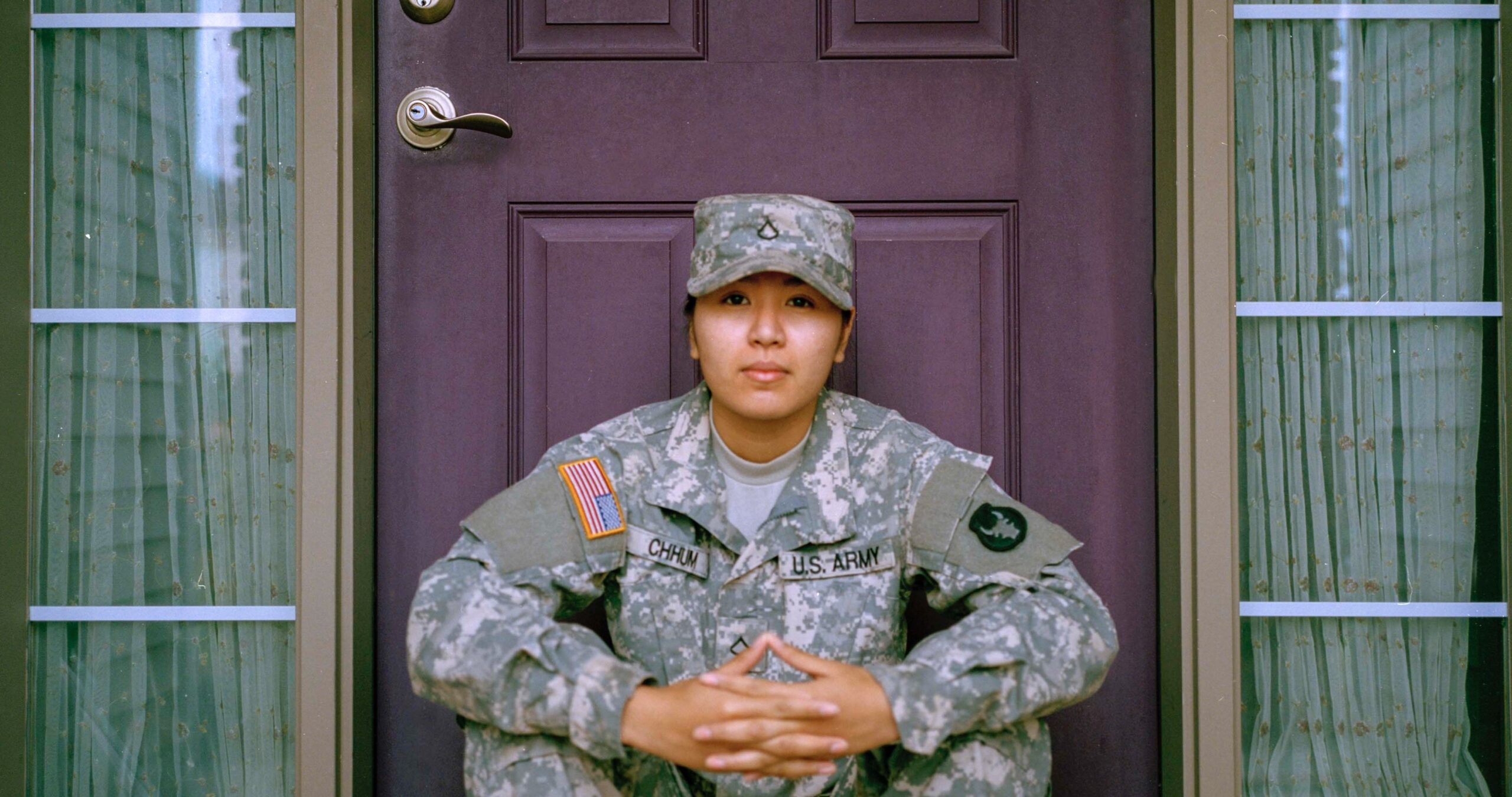If a military couple contacts you for a session, do you feel prepared to address their concerns or will you refer out? As a civilian sex coach, do you feel apprehensive about serving the military community?
This article will review some of the key things you should be familiar with when addressing the military couple, including existing relationship support within the military, common myths, and how as a civilian sex coach, you can navigate the terrain of a military couple through planned and unplanned separations.
Couples support within the military
Every branch of the military offers some form of marriage enrichment programs, which are free, confidential, relationship consultation services available to couples. While it’s not necessary for you to be well versed in these programs, it’s important for you to be generally familiar with their availability because the military couple that has contacted you has probably tried one out. These programs tend to focus on building resilience, communications skills, strong bonds, handling conflict, and forgiveness.
Fortunately, as a sex coach, you can address a couple’s intimacy concerns more openly in ways that these programs cannot. For example, a sex coach can assist a military couple who has expressed an interest in opening up their relationship and establishing boundaries that apply during a separation and after.
[Important side note: When discussing consensual non-monogamy or kink, it is important to realize that people on active service in the military are potentially at risk. Article 134 of the Uniform Code of Military Justice prohibits adultery; active-service military personnel can conceivably be subject to court martial, dishonorable discharge, and even prison for being openly polyamorous.]
In the tight knit communities that many active duty service members find themselves in stateside and abroad, a mixture of support and shame can be present depending on the intimate lifestyle choices being made. As sex coaches, we can address the military couple’s sexual concerns directly and holistically with the MEBES© Model.
Common Myths

Photo by Felipe Bustillo on Unsplash
Military couples are no strangers to the rumors and myths about their communities and relationships. Often, civilian friends and family become stressors when they perpetuate myths in genuine efforts to protect their military friends when making huge life decisions.
It’s important to be aware of some of the most common myths and hold space for those that may have influenced how your clients feel about their current partnership.
- Everyone cheats in military marriages and is doomed to fail: Couples are often warned by friends and family that cheating is extremely high in military marriages.
- Military couples never see one another: There are several variations to the types of planned and unplanned separations for military couples. They include Temporary Duty Orders, Deployments, and Permanent Change of Station Orders.
- Military spouses rely completely on their partners: It’s common to assume that the dependent spouse must rely completely on their partners abroad. While many dependents do find work overseas, they still may experience struggles with their sense of identity especially when considering swift changes in household roles.
- Military spouses always have a close community to help when their partners are gone: The military does a great job of providing support groups for couples and spouses with deployed partners, but it’s not always the case. Within these groups, the closeness can actually become a hindrance to exploring intimate concerns. This is why having an outside professional providing support in a safe and confidential space can be so valuable.
- Military couples always enjoy the romantic homecoming: This can be a confusing time with excitement, apprehension, desire, all present, making it difficult to connect physically despite months focused on this reunion.
- Military members marry just for the benefits: While this might be the case for some, it isn’t for everyone. It’s important to take into consideration the benefits that are offered to couples deciding on IF and WHEN they will marry or divorce. Monetary benefits could be large enough to influence these types of decisions.
Anatomy of the military couple session
In a similar way that Dr. Patti describes in her book, The Art of Sex Coaching, it’s important to consider the idea of three entities within couples coaching sessions. The difference when it comes to military couples is considering the military itself as a separate entity present within the couple’s relationship.
Unlike other couples experiencing the pressures of planned and unplanned separations, the military itself could be considered an entirely separate entity that plays a major role and contributes very specific stressors to the equation. For many, the military feels like a parent that dictates much of what the military couple experiences with little room for discussion. With that being said, it is also an entity that provides many basic needs and provides opportunity.
In addition to understanding the Emotional Cycles of Deployment (ECOD), which is discussed in a previous article, you should familiarize yourself with the various stressors that can occur at each of these six phases. Understanding the timelines and accompanying stressors will be key to creating an action plan for your military couple using the MEBES© Model.
For example, in the second phase (deployment), the partner at home may experience emotional confusion, depression and loneliness, feelings of overwhelm, and social withdrawal. In preparation for the long haul ahead, you can help your client refocus on this time as an opportunity for growth, during which they could build a stronger relationship with their sexual self through solo-pleasure. In terms of the MEBES© wheel, potential blockages in the first phase could be related to the (E)motional aspect, and refocusing on solo-pleasure during the time apart would fall under (B)ody.
During the third phase (mid-deployment), new routines feel established, and the couple may experience feelings of confidence, control, and independence. While these are all positive, anger and resentment could crop up toward the deployed partner, which could affect their long-distance intimacy. For example, the at-home partner may feel discomfort with the deployed partner’s use of pornography and sex toys while on deployment. A sex coach can help the couple have these conversations before the deployment and guide them through the discomfort.

Photo by Ben White on Unsplash
During the fifth phase (reunion), couples may experience a lot of anxiety in anticipation of their romanticized homecoming. It will be extremely important for them to discuss realistic expectations about the reunion phase while celebrating. If couples aren’t prepared for a re-definition of roles and how to deal with the physical re-introduction to their spouse, conflict may arise. Teaching a couple about the Touch Continuum, as defined by Dr. Patti in her book, and how to have open discussions about this can be worked into their action plan. You might make suggestions to help the person shift their perspective about their upcoming reunion, which directly relates to the (M)ind aspect of the MEBES© wheel.
In the final phase (post-deployment), the lasting effects of each deployment become evident. Sex coaches need to learn about the effects of PTSD on sexual function. You’ll also want to inquire about any medications your client may have been prescribed to treat PTSD. Many of these will also have an effect on sexuality.
Any separation, whether it’s planned or unplanned, can be broken down into phases that can be tracked. Understanding that makes it possible to identify and coach clients through blockages by using the MEBES© Model. If you feel called to helping the military community, know that it’s not necessary to have personal military experience. By familiarizing yourself with the key points in this article, you can create an effective action plan to help military couples through the unique difficulties they face.
Continue the Conversation
Curious about training to become a Certified Sex Coach™? Join the next live Info Session to meet the SCU team and participate in a live Q&A!





